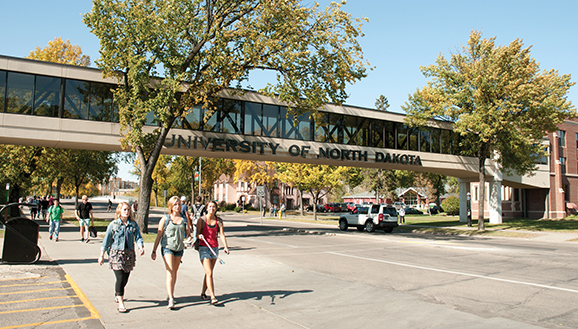"A Tireless Open-Government Crusader"

Some kind words from the Grand Forks Herald for me today, as well as a hat-tip to this post from earlier this week which points out that the North Dakota University System has broken open records laws 17 times since 2010.
Not exactly an auspicious track record.
“The board knows it has angered North Dakotans too many times on this issue,” writes opinion editor Tom Dennis on behalf of the Herald. “And if ever there was a time for the board to be on its best behavior, that time is now.”
Dennis is referring to Measure 3, which is looming on the November ballot. That constitutional amendment, if passed, would rid the state of the existing State Board of Higher Education and replace it with a three-member commission.
But Dennis also misses the point of the post he quoted. The Higher Learning Commission has joined forces with university system bureaucrats (you know, the people who can’t follow open records laws) to try and kill Measure 3 through fear-mongering. The HLC won’t say definitively if Measure 3 would cost the state’s universities their accreditation (research by Legislative Council didn’t find a single instance of that ever happening in the history of higher education in the United States), but they’ve described it as a possible “threat.”
But then, can we trust the HLC? These are the same people who just released a report praising the transparency of the university system.
“The team’s review of many NDUS and HLC documents, coupled with individual and group interviews with NDUS staff and SBHE Board members confirms that the system is currently functioning with a high degree of integrity,” the recent HLC report read. “The Board’s and NDUS staff’s approach to making progress in this area is particularly noteworthy.The system has made good use of traditional and high-tech communication tools through which it has established a high degree of transparency between and among its various constituents.”
A “high degree of transparency”…if we ignore the dozen and a half times the university system has broken transparency laws in less than four years.
The problem with those who question reforms of higher education is that they put far too much stock in objections from people who are part of the status quo. Of course the people who are in positions of power in higher education now aren’t going to want to change anything. Their opinions shouldn’t be entirely discredited, but they should be taken as a grain of salt, given that they are very often self-serving.
There is no question that our university system in North Dakota has serious problems. From political cronyism to wasted money to poor academic outcomes for our students, we need reforms.
Measure 3 is a good place to start.




